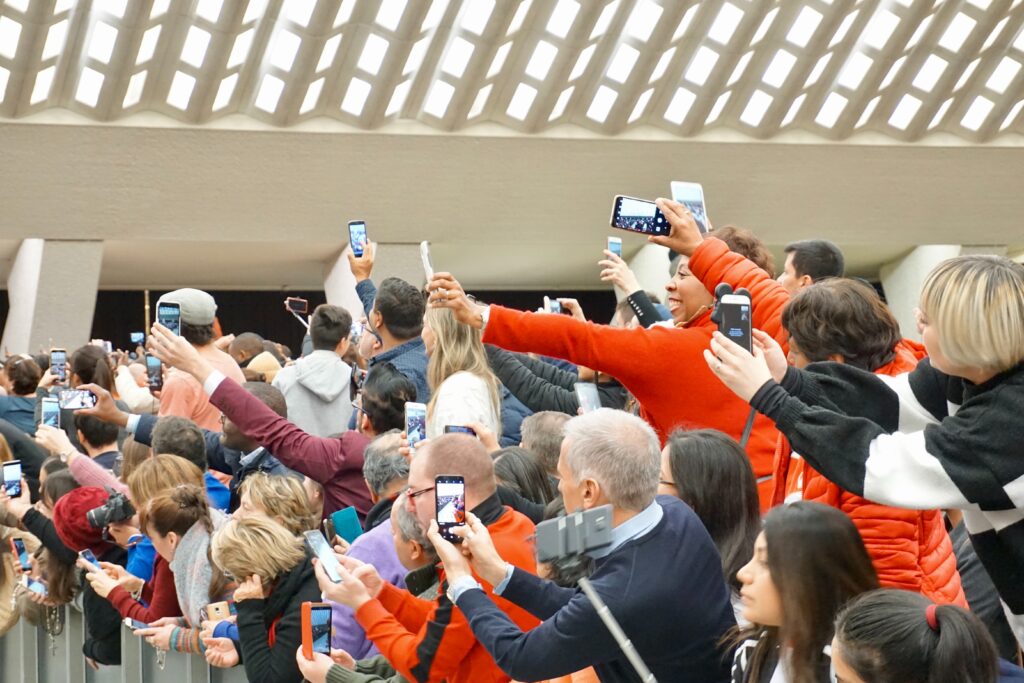
Photo: Barbara Provenzano | Unsplash
Redefining local journalism: What is news?
The views expressed in this column are those of the author and do not necessarily reflect the views of the Reynolds Journalism Institute or the University of Missouri.
Since the advent of the Internet, many people have increasingly wondered: What is “news” in a universe of infinite information? What is a journalist’s role when anyone can publish a story and report the “Truth”? David Caswell, Executive Product Manager of BBC News Labs, asks the most urgent question of all: “Does society still need news publishers and journalists to do journalism?”
Earlier this year, Caswell published a piece called Journalism innovation in the 2020s, where he describes the distinction between ordinary and existential innovation.
“Every organisation, whether in news or any other business, engages in ordinary innovation. This innovation is the search for, and application of, better ways of producing what the organisation produces – primarily in response to competition, changing customer expectations, regulation and technological developments.” he said.
In the past decade, the news industry’s forays into mobile apps, live video, Snapchat, VR, podcasting, and other emerging tech and platforms, fall into this category. As someone who is often an eager, early adopter, I can personally attest that investing in “ordinary innovation” initiatives can be instructive, albeit sometimes fleeting, endeavors.
These efforts, however, have shown to be woefully insufficient. This year has been another painful reminder of how the news industry, and particularly local journalism, has failed to deal with its own existential crises.
This year the Covid-19 pandemic has already left 30 million Americans (and counting) without jobs, and the nation’s racial wounds have been freshly torn open. The ensuing economic downturn and social upheaval accelerated the inevitable: thousands of newsroom layoffs, internal revolts, and the continuous decline of public confidence in journalism in this country.

I’ve spent more than a decade working in journalism. So when Caswell asks if we are still needed, my heart wants to respond with a resounding “YES!!” Many former journalists, foundations, politicians, and subscribers believe that a free press, and synonymously local journalism, is essential to ensuring a thriving, vibrant democracy. What we cannot ignore is how the reality has fallen short of the ideals. As our information ecosystem continues to rapidly evolve, the local newspaper industry’s dismal numbers reveals how we have failed to adapt.
Caswell calls the pressing need to confront journalism’s existential challenges as “existential innovation.” He offers probing questions rather than clear-cut answers, but the message is clear: We must fundamentally reimagine journalism’s role and purpose in society.
This conversation, particularly when it comes to local journalism, is long overdue.
Christopher Wink, the CEO of Technically Media, proposes one interpretation of what existential innovation might look like for local news. He calls it “journalism thinking.” In his view, “We should never again ask “what is the business model for local journalism,” because it misunderstands the problem and the solution. Instead, we should think of the societal good we associate with journalism ideals and bring them to corners of our economy in which we can compete in a marketplace.”
So what is journalism’s ideals or DNA? Wink describes journalism as “the act of asking tough questions and offering coverage that might piss somebody off because it comes down on a point.”
He cites Technically Philly, one of his publications, as an example. Technically Philly is infused with journalism DNA because he defines their brand, value, and responsibility as covering the trend, pointing out the problem, asking a question and being told they shouldn’t. His competition is everywhere, but they’re not all media outlets. While he holds true to certain journalistic values, he doesn’t define Technically Philly as a local newspaper.
Local newspapers are failing for many reasons: Hedge fund ownership structures, industry-wide consolidation, and shrinking markets are a few. The inability to envision other ways to embody and express journalistic values, however, is one of the reasons local newspapers haven’t grown their audience since 1990. Too many local news organizations are stuck in the past while spinning down their budgets experimenting with shiny new technologies rather than redefining their mission, identifying their strengths, and talking to their customers.
Like Wink, I agree with the need to inject “journalism thinking” into other aspects of our market and that more potential revenue opportunities will appear once we do. But his definition of local journalism is far too narrow.
In my experience, local journalists are excellent at:
- Demystifying complex concepts and events (i.e. local politics, school systems, breaking news)
- Amplifying and empowering individual voices (i.e. op-eds, letters to the editor)
- Connecting disparate communities with one another (i.e. classifieds, features, events)
Any expression of these is evidence of journalistic values. Journalists frequently express them in the form of a news article, photos, video, or a podcast, but numerous other companies that would never call themselves journalistic are also creating and delivering value to residents in the way that local newspapers once did.
Nextdoor, the hyperlocal social networking platform that connects neighbors, local businesses, nonprofits, brands, and agencies with one another, is the most obvious. They’re not a local news organization, but they’re amplifying and empowering individual voices and connecting disparate communities.
Other companies that create a tremendous amount of value for local residents include platforms like Yelp, Meetup, Eventbrite, Zillow, LinkedIn, and even Tinder. Yelp amplifies a resident’s voice through the form of a review and demystifies the process of how to find the right handyman or hair salon in your local area. Meetup created digital tools that empowered individual residents to organize and form relationships with one another. Eventbrite is an online ticketing platform, but it connects disparate communities with one another through the form of digital event pages and promotional material. Zillow simplifies the process for finding and purchasing a house, and LinkedIn makes it easy for recruiters and job seekers to connect. Tinder would never claim to be a local news organization, but it took a corner of what once lived in a local newspaper, the personal classifieds, and created a mobile app that almost instantly matches you with potential partners.
Some may roll their eyes at the idea of equating global tech platforms to local organizations that embody and create journalistic content, but the fact is that local news organizations used to do a lot of what these tech companies now offer to local residents. The significant difference is that these tech companies aren’t wedded to a singular definition of what a local company can be. Instead, they relentlessly listened to their potential customers and created tech-driven products that solved their problems. We should strive to compete with these companies by injecting journalistic values into truly innovative products that bear no resemblance to traditional publications.
Journalism’s mission was never just about publishing stories for local residents. In the 1840’s, printing stories on newspapers just happened to be the latest technology and the most effective way to deliver journalistic value (in this case, knowledge and information) at scale. Decades later, we now have the opportunity to reimagine the ways in which we create and deliver journalistic values to local residents.
The question we must now ask ourselves is: “Is it too late?”
Editor’s note: Leow’s next column will explore a vision for what local journalism could look like and highlight a few startups that wouldn’t call themselves local news organizations, but are delivering value to local residents.
